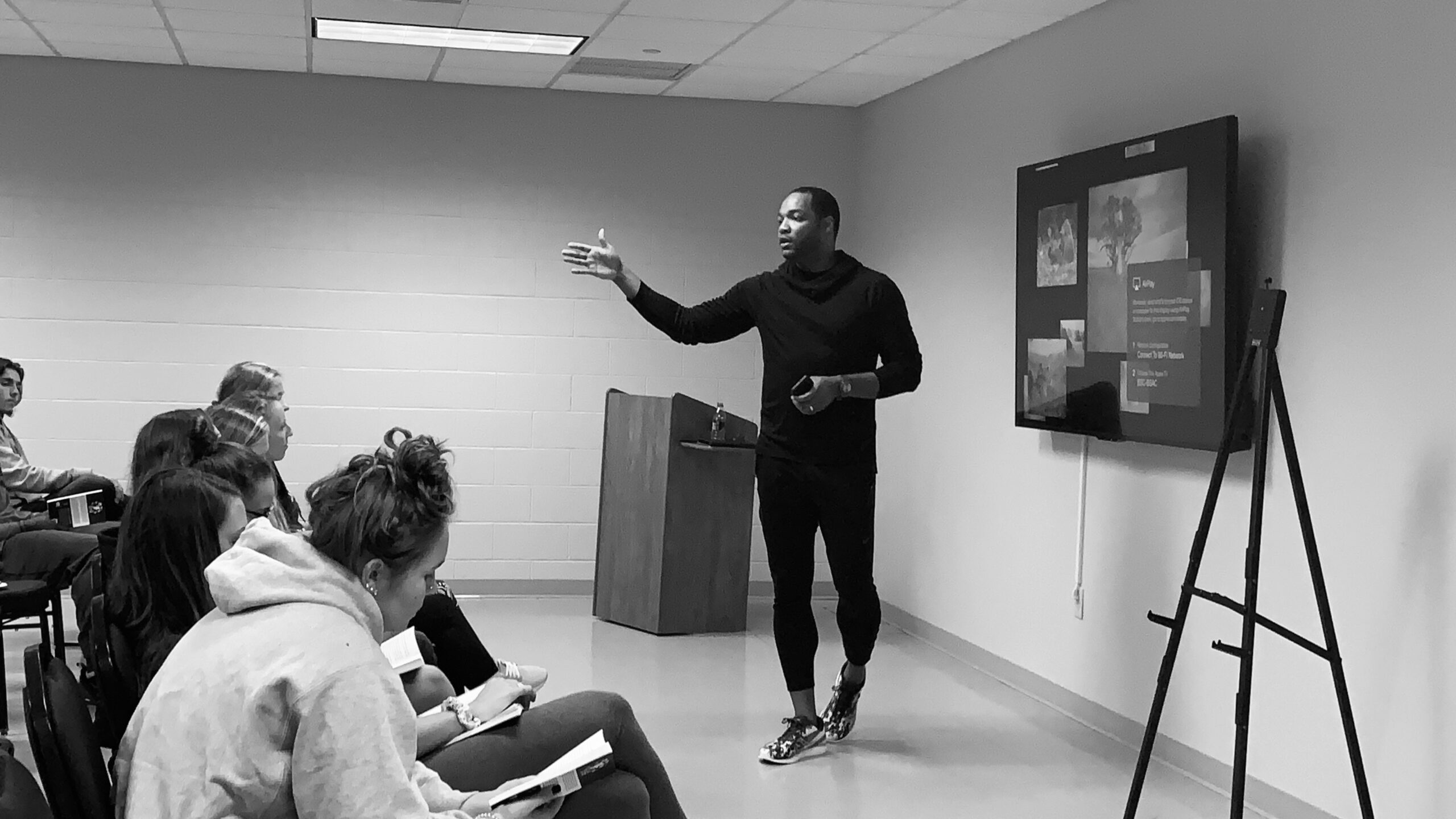During our Athlete for Life Division III kickoff at Shenandoah University, student-athletes were eager to learn about transition, balance, and communication – foundational elements to excelling not only as a student-athlete, but as a well-rounded person.

In the world of college athletics, deciding to attend a Division III (DIII) school is pivotal for student-athletes given DIII universities don’t offer scholarships, though the experience is beyond rewarding. Shenandoah University is passionate about offering student-athletes with programs strongly focused on an integrated approach on sports and studies. This type of approach is exactly what our AFL Initiative advocates!
Omari Faulkner, author of Athlete for Life, highlighted the importance of maintaining relationships with close friends, family, professors, coaches, school administrators, teammates – a student-athlete’s main pillars of support – while remaining focused on balancing priorities throughout the season.
A student-athlete’s champions are there for support and advocating one’s success the entire way, but maintaining those relationships and communicating are absolutely paramount.
“After arriving to Georgetown University, I didn’t understand the level of competitiveness required to stay on your game. It as a rude awakening. I pushed relationships with friends, professors, teammates aside to focus on basketball, which completely through my balance off. Look through the crystal ball to avoid making this mistake – remain focused on balancing your priorities and not fall during the season. Because after the season, it could be too late. Those relationships could be lost.”
– Omari
A significant factor of a student-athlete’s transition from university to the professional workforce, but often overlooked, is the interview process. The key is focusing on your discriminators– what sets you apart from other candidates? What makes you unique? Which skills have you developed over your student-athlete career that apply to the role you are seeking?
Student-athletes have a myriad of priorities that other students may not have. Focusing solely on academics during college is challenging enough, but exceeding in both an academic career and athletic career simultaneously is extremely challenging. It’s so important to vocalize this discriminator during interviews, provide examples. Focus on why you are there, who you are, your unique discriminators, and drive that message home.
This group of Shenandoah University student-athletes, ranging from Freshmen to Seniors, who symbolize the school’s amazing athletic education program were a true testament to witnessing Athletes for Life in development.
